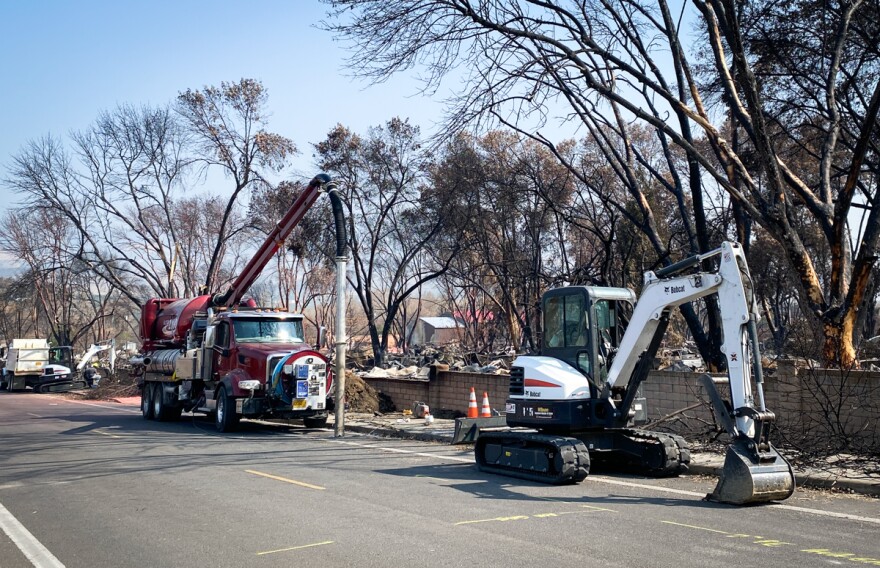The Oregon Department of Environmental Quality is currently working with cities and counties to remove hazardous materials — like asbestos or petroleum products — from destroyed properties. That work is completely covered by state and federal funds from the Federal Emergency Management Agency, thanks to a Sept. 11 disaster declaration that brought financial aid to Oregon for hazardous waste cleanup.
If FEMA increases financial assistance to Oregon, then local governments can begin a deeper cleanup process that removes all other debris, like broken walls, ash, and a layer of contaminated soil. Participating property owners won’t need to pay any debris cleanup costs.
“We don't have a firm answer yet on the ash and debris removal,” says Oregon DEQ spokeswoman Laura Gleim. “We're working on nailing down that funding.”
Until then, city and county officials are recommending people wait on governmental aid before they hire someone to clean properties themselves.
“We're not telling people that can't clean up their property,” says Talent City Manager Sandra Spelliscy. “If they have the licensed contractors who have the certifications necessary to do the testing and the removal, they can go ahead and get started, but that will be on their dime.”
State and local officials are also recommending people to stay off their properties until they’ve been assessed by hazardous waste crews. There are a lot of dangerous materials involved — like broken air conditioners, refrigerators, and propane tanks — and much of it needs to be handled and tested by a licensed contractor. That can be expensive, and homeowner’s insurance often covers only a fraction of those costs.
If property owners go that route, they also might not qualify for governmental aid later down the line.
“So if they engage with the cleanup and they run short of money, they can't go back to the FEMA and ask for additional costs,” says Phoenix City Manager Eric Swanson. “So I think waiting makes a lot of sense.”
Still, many homeowners or businesses might not have the time to wait for state-hired contractors to begin debris removal, which might not begin until November and will likely take several months to complete.
“I can totally get why people want to do it,” Swanson says. “We’re Oregonians, right? We want to rebuild, we want to move forward. I appreciate that because that's a very important goal for the community, to try to retain as many of our citizens as possible. We want to support that, but at the same time, we want to do it in a systematic way.”
Property owners who want to participate in community-wide hazardous waste removal need to sign an access agreement with their city or county by Oct. 16.




